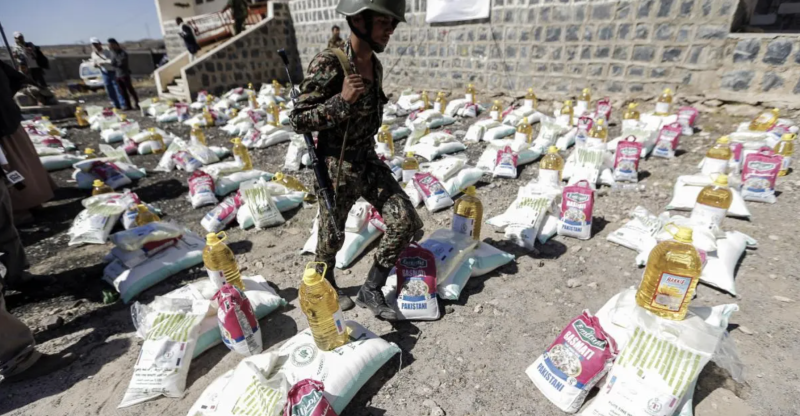Yemeni women demand equality in the midst of war


Applause rang out in a conference hall in the Yemeni city of Al Mukalla on Tuesday as a university professor revealed the number of female teaching assistants at a local government university had exceeded their male peers for the first time.
For gender activists and experts who attended the women’s conference in the southeastern province of Hadramout, the news is an indication that their decades-long efforts towards achieving gender balance in Yemen are bearing fruit.
The fight for women’s rights in Yemen is far from over, though. A January 2019 survey by the World Economic Forum ranked Yemen last on a list of 146 countries on women’s rights.
Activists say gender equality issues have been put on the back burner as the Yemeni government, backed by the Arab Coalition, battles Iran-backed Houthi rebels. The now-five-year war has claimed the lives of thousands of people, but conference organisers say the time is right to remind decision-makers and civil society about issues of inequality.
Funded by the German’s international development agency GIZ, the two-day Women’s Conference brought together 300 gender advocates, experts, university professors, government officials, NGOs representatives, businessmen and preachers. It was the first conference of his kind in the area since 1990.
Participants discussed the challenges women face in Yemen, including access to education, empowering women in politics, combatting corruption, medical care and the role of women in achieving a lasting peace in the war-torn country.
Seventy-six per cent of internally displaced persons in Yemen are women and children, and an estimated three million women and girls are at risk of gender-based violence, the United Nations Population Fund estimates.
After two days of discussion and workshops, attendees produced a conference paper with 21 recommendations for improving the lives of women in Yemen.
These included expanding technical and vocational education for women, establishing a database for unemployed female graduates, improving reproductive health care, and increasing women’s participation in the country's politics and judicial system.
Fayza Bamatraf, the conference’s chief organiser and gender activist, told The National that she is delighted by ideas and proposals for empowering women proposed at the conference.
READ MORE
UN envoy to Yemen says ‘shift’ on Stockholm deal taking place year on from agreement
Women have a 100-year wait to get to gender parity, study shows
“There is an increasing number of women in the public sector. The number of female managers of government bodies in the province of Hadramout has increased from three several years ago to 10 in 2019,” she said, hailing the willpower of women that led to greater empowerment of women in the society.
Ms Bamatraf insisted on sending invitations to male directors of Hadramout’s remote mountainous and desert districts where child marriage and a lack of female education is rampant. She wanted women from these districts to personally describe their suffering and find a listening ear among attendees.
“Those are decision-makers in their districts and we want them to take part in implementation of the conference’s outcomes,” Ms Bamatraf said.
Men were welcomed at the event in which attendees listened to talks on female empowerment and split into groups to discuss practical solutions to raising the status of women in the country.
Issues such as harassment, rooted customs and traditions and men who refuse to marry educated women were discussed animatedly.
Elsewhere at circular tables, male religious figures shared ideas with gender activists, moderated by a university lecturer.
Government officials also listened attentively to women sharing their personal stories and ideas, promising more jobs for women and establishing training centres for women in villages - only six per cent of women are in employment in Yemen, International Labour Organisation figures show.
Khaloud Abdul Aziz, a government employee who came from the city of Seiyun, told The National that she pushed for giving women higher positions in the province. “There are male deputy governors. Why do we not we have female deputy governors too?,” she said.
On the second day, four papers about empowering women economically, fighting corruption, peaceful coexistence and health were presented to the gathering.
Fatima Mahfoud, a member of the General People’s Congress, said the conference was the first time she took part in such a large gathering for women, suggesting future conferences be expanded to at least seven days and to have more women invited.
“The ideas that were highlighted during the conference were great and I am sure they would bring about changes if they were implemented,” she said.
The conference did more than make recommendations, though.
Ms Bamatraf said a group of participants were selected to oversee the implementation of the recommendations.

Taiz – Human rights defenders and humanitarian activists have accused community committees in Yemen’s Taiz governorate of involvement i…

Sana'a -- A groundbreaking local investigative report has revealed that the Houthi militia in Yemen has been using chemical substances and narcotic…

Al‑Bayda — Human rights sources revealed that Houthi militias have re‑arrested a Yemeni citizen in Al‑Bayda governorate, central Yemen, after…